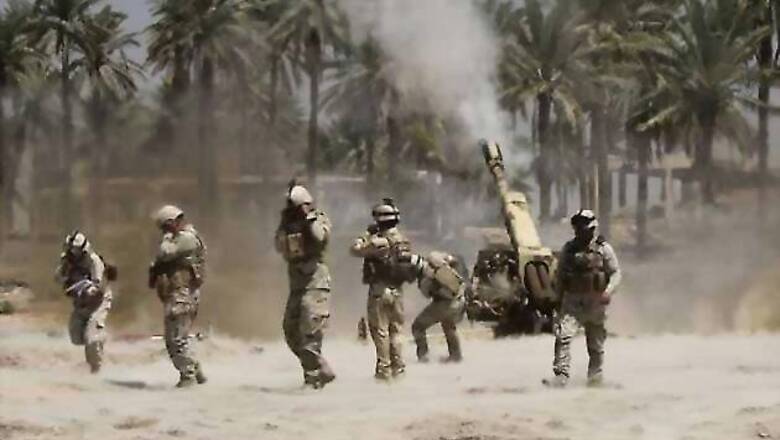
views
Baghdad: Iraqi troops battled to dislodge an al Qaida splinter group from the city of Tikrit on Monday after its leader was declared caliph of a new Islamic state in lands seized this month across a swathe of Iraq and Syria.
Alarming regional and world powers, the Islamic State in Iraq and the Levant (ISIL) claimed universal authority when it dropped the local element in its name and said its leader Abu Bakr al-Baghdadi, as leader of the Islamic State, was now caliph of the Muslim world - a mediaeval title last widely recognised in the Ottoman sultan deposed 90 years ago after World War One.
"He is the imam and caliph for Muslims everywhere," group spokesman Abu Muhammad al-Adnani said in an online statement on Sunday, using titles that carry religious and civil power. The declaration came at the start of the holy month of Ramadan.
The move, which follows a three-week drive for territory by ISIL militants and allies among Iraqi's Sunni Muslim minority, aims to erase international borders drawn by colonial powers and defy Baghdad's US - and Iranian-backed, Shi'ite-led government.
It also poses a direct challenge to the global leadership of al Qaida, which has disowned it, and to conservative Gulf Arab Sunni rulers who already view the group as a security threat.
The Iraqi government has appealed for international help and has accused Sunni neighbours, notably Saudi Arabia, of having fostered Islamist militancy in Syria and Iraq. Iraqi army spokesman Qassim Atta said declaring a caliphate could backfire by underlining Baghdadi's group posed a risk to other nations.
"This declaration is a message by Islamic State not only to Iraq or Syria but to the region and the world. The message is that Islamic State has become a threat to all countries," he said. "I believe all countries, once they read the declaration, will change their attitudes because it orders everybody to be loyal to it."



















Comments
0 comment